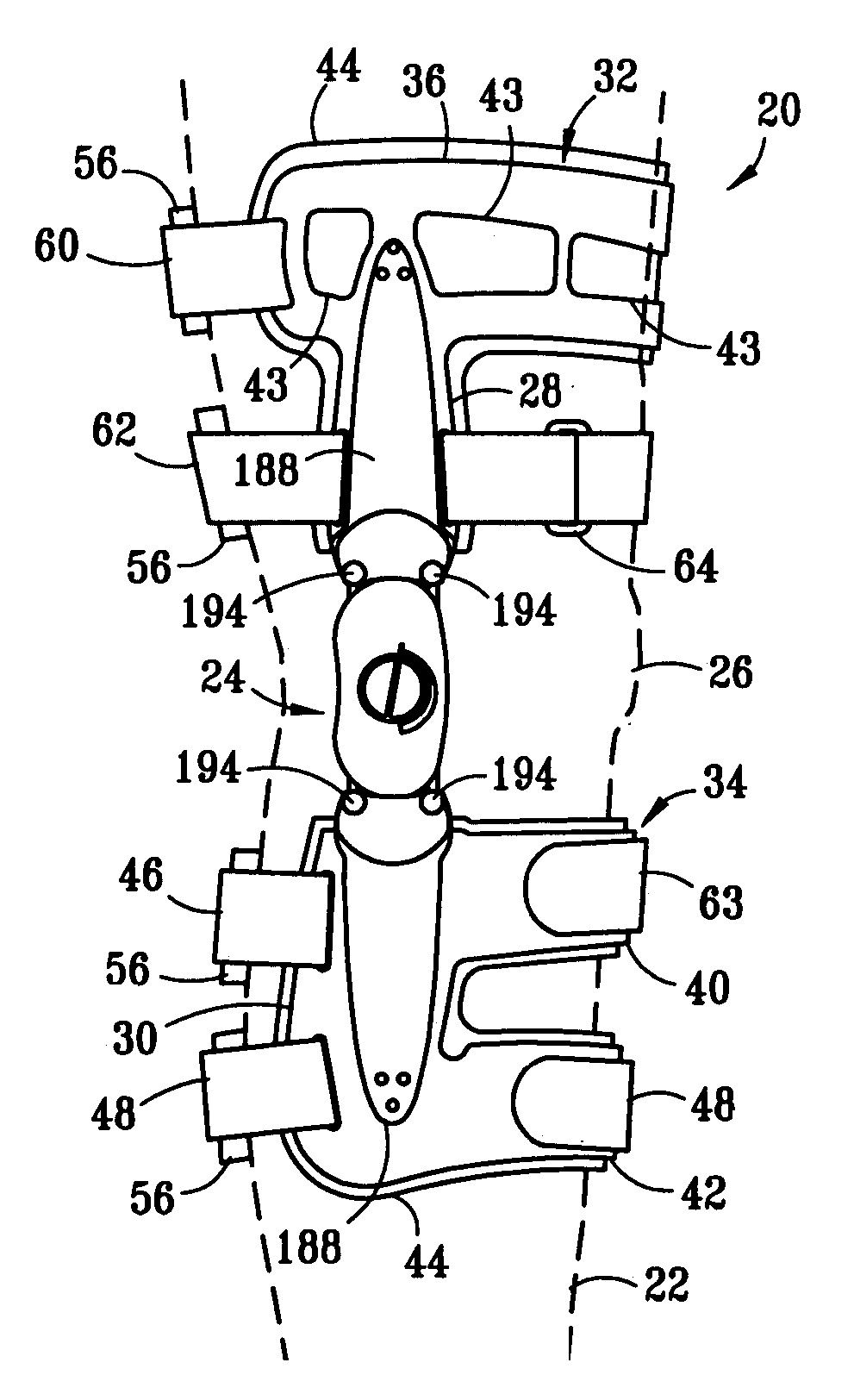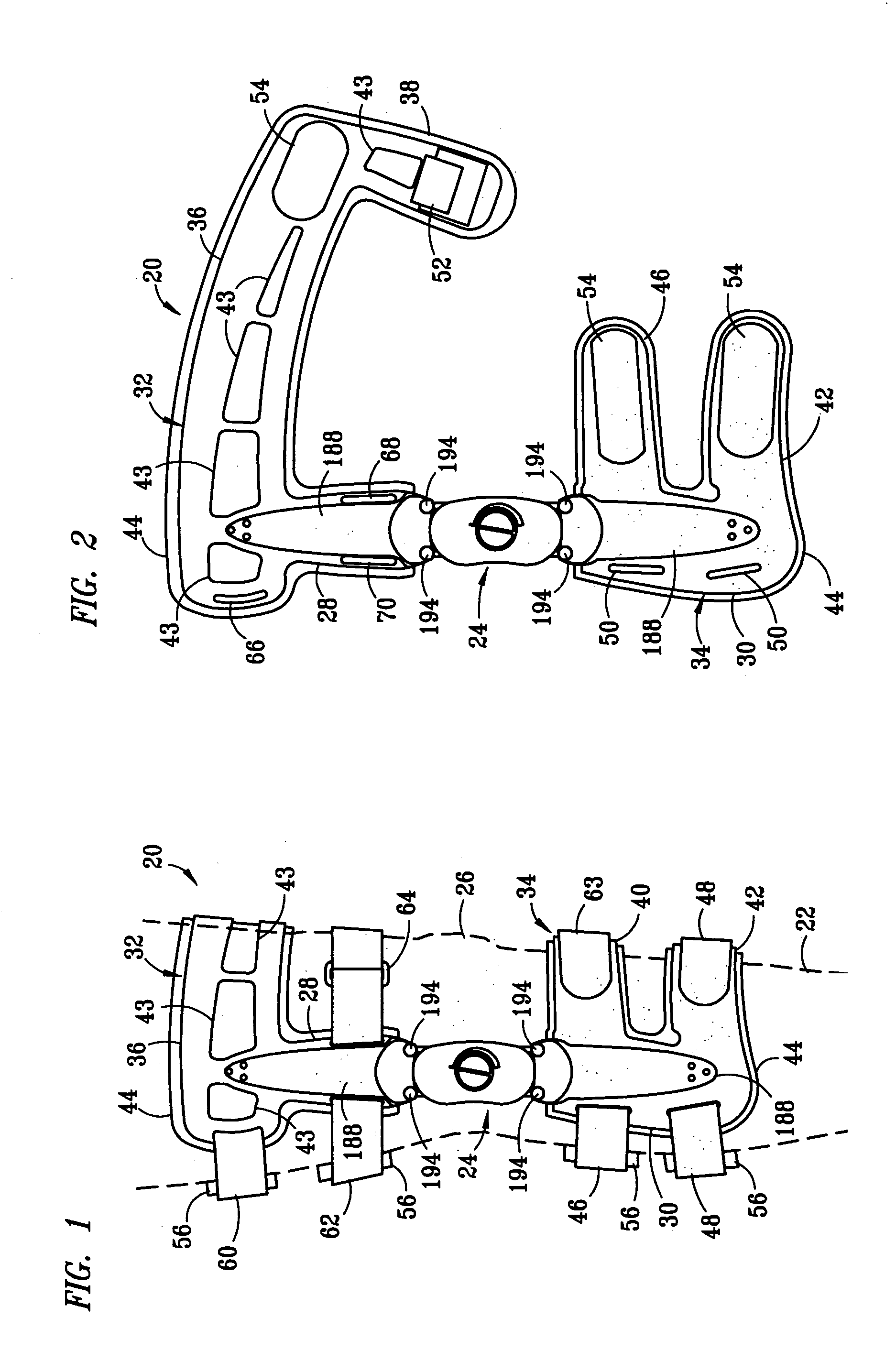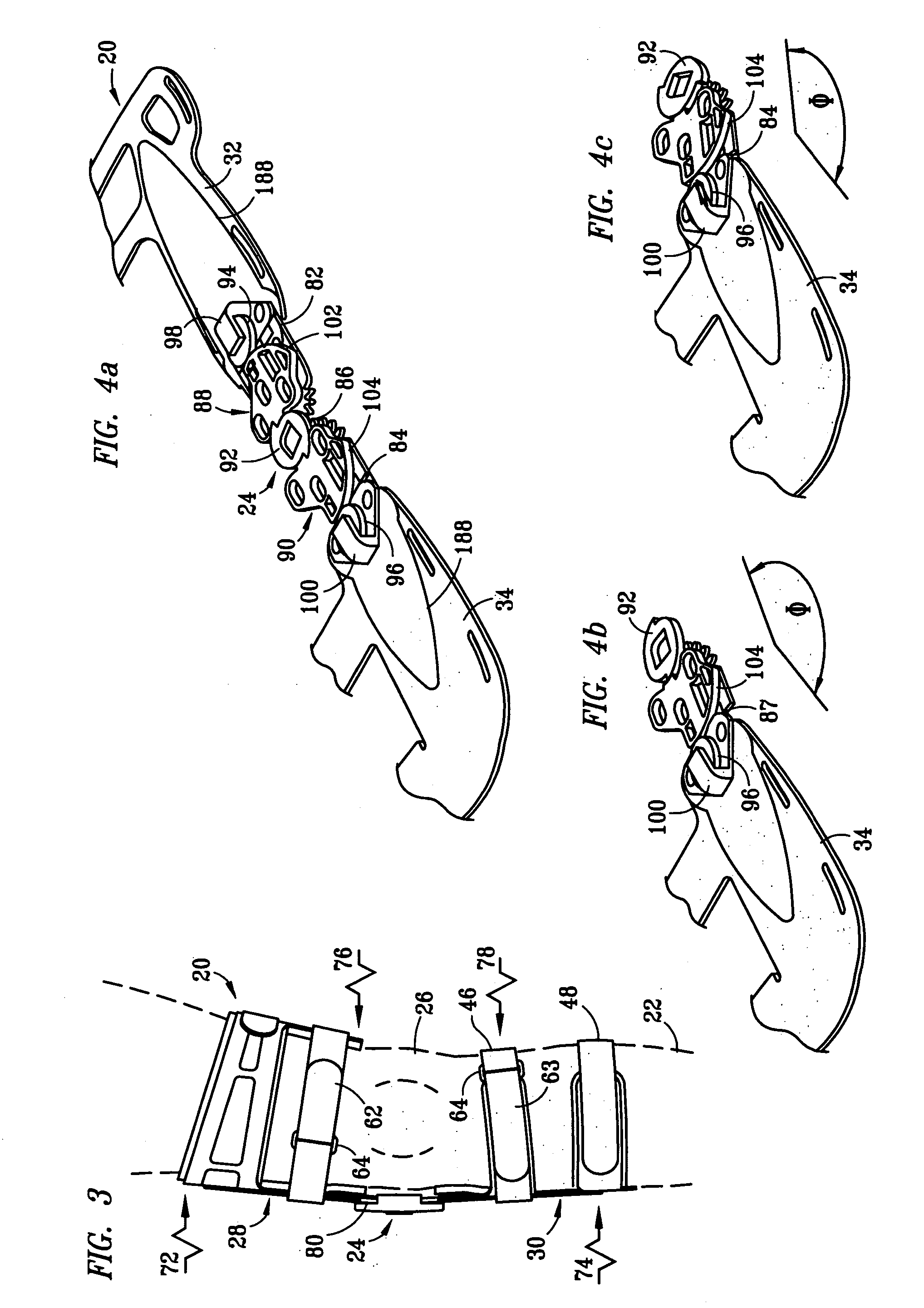Muscle powered dynamic knee brace
a knee brace and dynamic technology, applied in the field of orthopaedic knee braces, can solve the problems of increasing the pressure on the damaged compartment, increasing the pain of patients' activities, and providing a static bending force across the kn
- Summary
- Abstract
- Description
- Claims
- Application Information
AI Technical Summary
Benefits of technology
Problems solved by technology
Method used
Image
Examples
Embodiment Construction
[0027] A brace according to a preferred embodiment of the present invention is adapted to be secured around the leg of a patient, use muscle power to provide the required amount of bending force across the knee as the knee moves to full extension, and to dynamically remove the force as the knee flexes. While the following description of the preferred embodiment relates to a brace for treating the medial compartment of the left leg, one of skill in the art would understand any minor alterations required to adapt the preferred embodiment of the current invention for the treatment of the medial or lateral compartment of either knee.
[0028] With respect to FIGS. 1 and 2, brace 20 is adapted to be located about leg 22 such that joint 24 is next to the compartment of knee 26 that is damaged and needs to be opened. Upper shell 32 is located against leg 22 above knee 26 and lower shell 34 is located against leg 22 below knee 26. Upper shell 32 is secured to media / lateral joint 82 through th...
PUM
 Login to View More
Login to View More Abstract
Description
Claims
Application Information
 Login to View More
Login to View More - R&D
- Intellectual Property
- Life Sciences
- Materials
- Tech Scout
- Unparalleled Data Quality
- Higher Quality Content
- 60% Fewer Hallucinations
Browse by: Latest US Patents, China's latest patents, Technical Efficacy Thesaurus, Application Domain, Technology Topic, Popular Technical Reports.
© 2025 PatSnap. All rights reserved.Legal|Privacy policy|Modern Slavery Act Transparency Statement|Sitemap|About US| Contact US: help@patsnap.com



